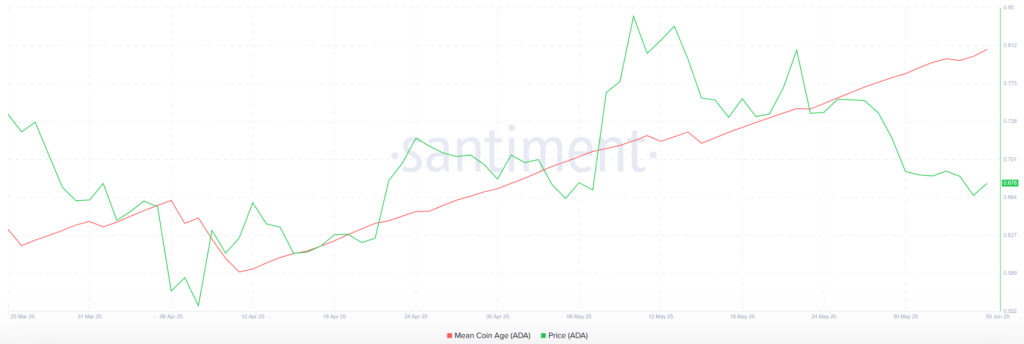In a recent interview, entrepreneur David Heinemeier Hansson—creator of legends like Ruby on Rails and Basecamp—made the controversial claim: “goals are bull crap.” He went on to argue that when you are doing something new, goals are “fundamentally corrosive.” Could it be true? For those of us raised on the dogma of goal setting and achievement, his claims sound heretical. But there is a deep wisdom hidden inside about navigating uncertainty?
To be clear, Hansson isn’t talking about how to navigate the world of routines and certainty, but how to face the uncertainty of doing something new, whether that be a new leadership role, a new project, or a new innovation. All of these come with uncertainty and uncertainty can be frightening because it presents the possibility that you might fail. And it’s not just an abstract threat. By definition, if you are facing uncertainty there is information you don’t have, surprises you can’t see, and twists that could up-end the best of plans. It can create a great deal of anxiety, so much so that most people don’t actually take the risk.
Is there a better way? Could one ever become “failure proof” in the face of uncertainty? Absolutely. In our interviews with innovators for The Upside of Uncertainty, we found that it is much more effective to focus on your values rather than your goals. This can feel very counterintuitive to a KPI-driven, goal-obsessed, quarterly results driven culture that permeates most organizations. But not only does it work, liberating your energy from anxiety to do actual work, but it also may hold the key to your ultimate success.
What makes this approach hard to accept is that in the dominant world view, you set a financial goal and you achieve it, and the achievement happens because you set the goal. This might work in familiar, known contexts like prospecting more customers within a defined sales region. But it doesn’t work in uncertainty. If you are doing something new, for example, developing a new product or service, creating a new business, following a creative urge, obsessing about a quantitative goal like revenue, likes, sales or users will increase your anxiety and most likely decrease your chances of success.
The trick is to realize that when you take a risk, whether as an individual, a leader, or an organization, you don’t actually control the outcome. There are too many unknowns, to many intervening circumstances, chance meetings, unforeseen circumstances to really control the outcome. At best you may influence it the outcome, but you don’t control it. Thus, obsessing about the achieving the goal will most likely drain energy away into anxiety, rather than being productive. But when you focus on your values, rather than your goals, two things happen. First, because you do have control over-achieving your values, your anxiety falls away and you have more energy to do work towards your goals and second, the work you do has more intrinsic value because it is motivated by the real need you are solving rather than abstract dollar signs. Let’s explore two very visible examples: David Heinemeier Hansson and Jeff Bezos.
Hansson has founded eight startups, including Basecamp. He admits that “putting something new into the world is an inherently frightening, disconcerting, disappointing thing to do.” But the best way to face that anxiety, he argues, is to focus on your values rather than your goals. For Hansson this means writing great software, treating employees well, and acting ethically in the marketplace. He explains that he has control over achieving his values but not over the goal. “Whether you meet $10m or not does not happen because you set that as a goal.” By contrast, by trying to achieve his values, “I will still look back on the path— the two years and millions of dollars we spent developing this thing —and feel great about it,” even if it was a failure!
In case that sounds too good to be true, consider that A growing body of empirical research underscores that when we connect with the purpose, the “why” behind a task, we do better work. In a study of call center employees hired to raise money for student scholarships, if employees spent just five minutes talking to a student who had benefited from a scholarship, they spent twice as much time on the phone and raised almost three times as much money.[1] Similarly, in a study of volunteer lifeguards, those who were told stories about saving a life volunteered 40% more hours than volunteers who read stories about the “personal benefits” of being a lifeguard.[2]
It is interesting to explore this idea in the context of Amazon.com. Today Amazon faces many challenges but values helped accelerate its rise. What are those values? In a video recorded years ago when a younger Bezos welcomed the recently acquired Zappos, Bezos explained the complete list of Amazon values: 1) obsess over customers, 2) invent, and 3) it is always day 1. Many times decisions were made that lost the money in the short term but prioritized values. For example, when a snowstorm in the UK delayed Christmas package delivery Amazon offered advance refunds so customers could still do their Christmas shopping. Leaders wondered what percentage of customers would take the offer. It was nearly 100%, destroying year-end results but building trust with customers that lasts. Likewise, executives are not promoted at Amazon for results, but for values.
If you are going to do something new, it doesn’t mean you can’t have a goal. Sometimes goals motivate us. But if it starts to cause you anxiety, remember, there is a way to approach it so that you can’t fail! It may even increase your chances of success. Focus on your values over the goal.
[1] Adam M. Grant, Elizabeth M. Campbell, Grace Chen, Keenan Cottone, David Lapedis, Karen Lee. “Impact and the art of motivation maintenance: The effects of contact with beneficiaries on persistence behavior, Organizational Behavior and Human Decision Processes, Volume 103, Issue 1, 2007, Pages 53-67.
[2] http://selfdeterminationtheory.org/SDT/documents/2008_Grant_JAP_TaskSignificance.pdf
Credit: Source link










